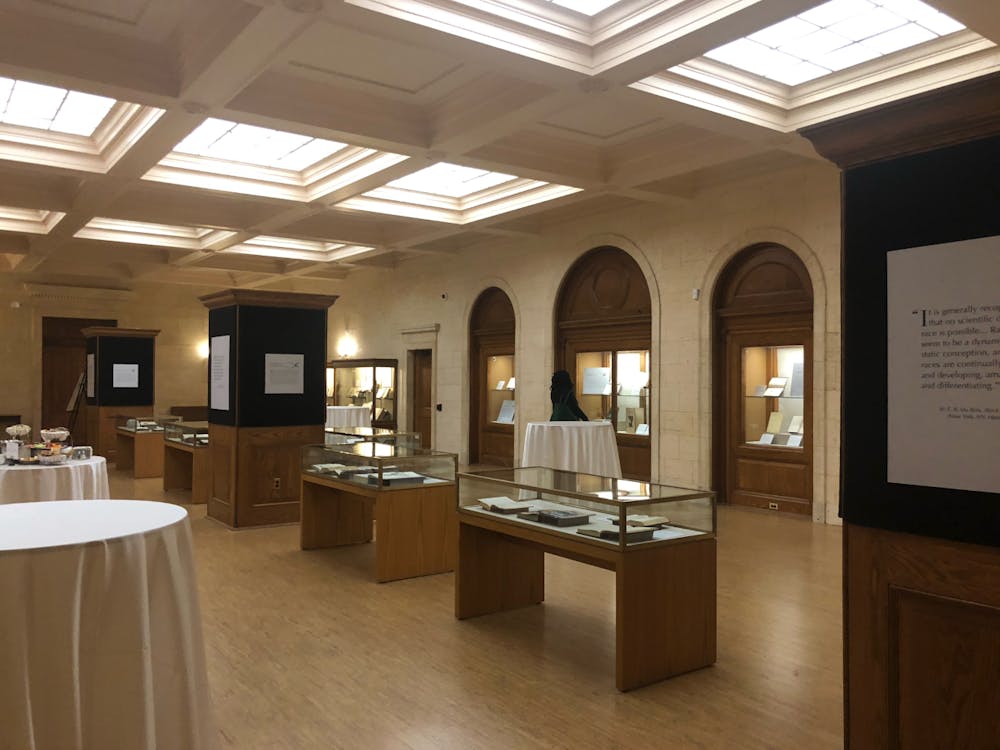After close to three years of planning, UNC Libraries celebrated the opening of the exhibition: “Race Deconstructed: Science and the Making of Difference” in Wilson Library the night of Feb. 13.
The exhibition examines the historical role of science in creating race distinctions and racial attitudes.
“This exhibition program that we have tonight, like any program and exhibition, requires a lot of work,” Vice Provost of University Libraries Elaine Westbrooks said. “And we're really happy about what we've done for this exhibition.”
Along with the opening, the Bullitt History of Medicine Club and UNC Libraries co-sponsored a lecture by Rana Hogarth, author of "Medicalizing Blackness: Making Racial Difference in the Atlantic World, 1780-1840."
Hogarth, an assistant professor of history at the University of Illinois at Urbana-Champaign, drew an audience of students, faculty and community members in a dialogue about the historical roots of the medical analysis of race to establish difference.
“The title was really engaging and it's something that I'd been interested in learning more about,” sophomore Kamryn Washington said. “I was just really excited to hear her speak on it.”
In opening, Hogarth noted the exhibition and introduced the more specific topic that she addressed.
“I hope that my talk today will complement this very thoughtfully curated exhibition,” Hogarth said. “At the same time, I do hope that what I have to say today will encourage further discussion about how the production of medical knowledge about face during the era of slavery was actually instrumental in sanctioning and the objectification, exclusion and subjugation of Black people's bodies for centuries.”
In her talk, Hogarth discussed how race was referenced in medicine primarily during the slavery and Antebellum eras, including concepts like racial pathologies and the false notion of innate Black immunity. She supplemented the lecture with historical examples, including the 18th century yellow fever outbreak and Antebellum era medical schooling in the South.




